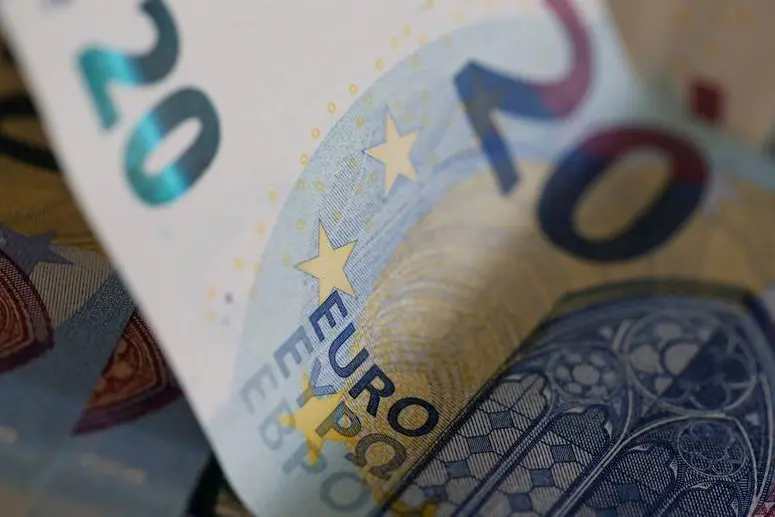PHOTO
LONDON- Germany's benchmark 10-year bond yield fell to its lowest level in just over two weeks on Monday, reversing an earlier rise as a flurry of headlines from Ukraine prompted a new rush to safe-haven assets.
Russia's military said on Monday that its troops and border guards had prevented a "diversionary reconnaissance" group from breaching Russia's border from Ukrainian territory - a report rejected by Ukraine. urn:newsml:reuters.com:*:nR4N2UD027
Nevertheless, the report, alongside comments from the Kremlin that there were no concrete plans for a summit between Russia and the United States over Ukraine, renewed demand for safe-haven bonds that had slipped earlier on Monday on reports that Washington and Moscow had agreed in principle to meet.
Germany's 10-year bond yield fell more than 2.5 basis points (bps) to 0.174%, its lowest since Feb. 4, a day after a hawkish pivot by the European Central Bank (ECB) triggered a selloff across European bonds. The 10-year yield was also roughly 15 bps below last week's peak, in turn the highest since November 2018.
"It's a case of will they won't they," Rabobank senior rates strategist Lyn-Graham Taylor said, referring to the chances of a Ukraine summit.
"Headline trading is difficult and judging what is going to happen next is tricky, so we've seen euro bond markets almost reverse their yields rise this morning and the strong PMIs are a bit of a side show."
GEOPOLITICAL DEVELOPMENTS
IHS Markit's Flash Composite Purchasing Managers' Index jumped to a five-month high of 55.8 in February from 52.3 in January, significantly above the median 52.7 forecast in a Reuters poll.
Improving demand for services pushed business activity across Germany's private sector to a six-month high in February, the German flash PMI showed.
"The PMIs were good indeed but the market is focused on the short-term geopolitical developments," said ING senior rates strategist Antoine Bouvet.
"I also think it will be difficult for markets to trade on fundamentals such as inflation and central banks only - given the previous iterations of a false de-escalation."
Yields on French, Dutch and other higher-rated bonds were also down 2-3 bps on the day, although yields on the euro zone periphery remained higher with global risk assets under pressure due to the geopolitical uncertainty.
Italy's 10-year bond yield, for example, was last up 3 bps at 1.88% IT10YT=RR and its spread over German yields widened to about 168 bps.
Money markets were pricing in 40 basis points worth of rate increases in total from the ECB by the end of 2022, down from about 50 bps a week ago IRPR.
Overall, trading in bond markets was subdued with U.S. markets closed for a holiday.
(Reporting by Dhara Ranasinghe; Editing by Andrew Heavens and David Clarke) ((Dhara.Ranasinghe@thomsonreuters.com; +442075422684;))





















